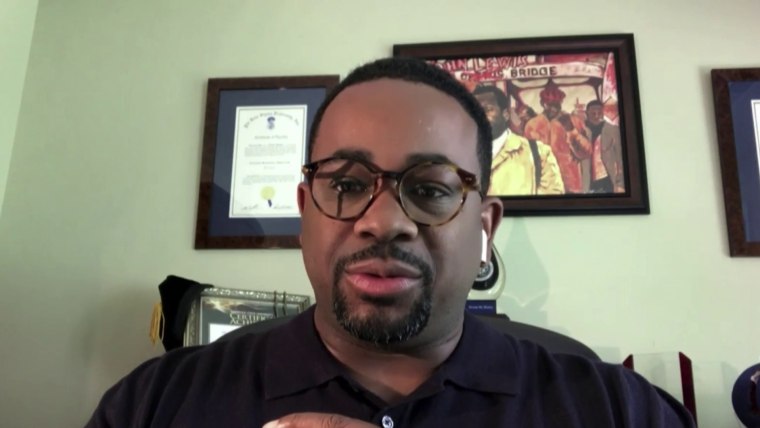How your favorite celebrities and hucksters cheated the cryptocurrency movement
Cryptocurrency
The last couple of months have been pretty deflating for many cryptocurrency enthusiasts.
If you know someone who’s been all in on the cryptocurrency front in recent years, you’ve likely seen them go silent (or, at least, quieter) as the crypto market has tanked lately. But the pain hasn’t been distributed equally.
Since May, more than $700 billion has been lost as the values of cryptocurrencies have plunged. And a survey from Ariel Investments and Charles Schwab found those losses were felt disproportionately by Black investors. It’s easy to see why cryptocurrencies might appeal to many Black people — or anyone else who’s been marginalized by the U.S. banking system. These currencies can feel like a new frontier, an opportunity to make money in a realm where government regulation is sparse. But that lack of oversight may have allowed some people to become prey.
The sad thing about these reported losses (especially for novice investors) is that things never had to be this way.
The sad thing about these reported losses (especially for novice investors) is that things never had to be this way. At various points during crypto’s rise and fall, there were opportunities to have more equitable and constructive conversations with newcomers about what purposes these currencies serve (or will serve in the future).
But money-hungry celebrities and banking industry hucksters hastily tried to get ahead of the game, and they essentially crowded out more reasonable voices in their push to hawk potentially worthless products. These people may be unknowing accessories to exploitation or worse: dubious salespeople who would rather sit on a mountain of riches than teach the world how to access some of it.
Now that this mountain is eroding and cutting some of these crypto shills down to size, there’s an opportunity for us to have the conversations we should have had months, if not years, ago. The gimmicky coins backed by celebrities and other crypto hawkers may never hold value, but the concept of digital currencies will.
I’ve written in the past about why smaller digital currencies, like cryptocurrencies, are still very hard to use now. In short, the technology they use to keep track of transactions, known as the blockchain, is designed to work best in the yet-to-be-completed virtual world known as the metaverse, rather than in the real world. I guess it’s possible your DJ Khaled-, Kim Kardashian-, Matt Damon- or Floyd Mayweather-backed coins will be worth something when that infrastructure is ultimately built. But it’s also possible you’ll be standing in the metaverse holding a token that’s the digital equivalent of a pet rock.
True financial literacy is the answer here — not glomming on to every product a hot celeb or a banking industry wunderkind supports. Now is the time to learn how we all can take part in the digital currency game as creators, not just consumers. In the wake of the crypto crash, we should be hosting seminars teaching people how to turn their own skills into currency for the future, virtual world.
If you know how to knit or bowl or build houses or fish or sing or paint or do literally anything else of interest, it’s possible for images or videos you create to be minted into a currency of your own to be traded in the virtual world. Digital currencies like crypto and NFTs are building blocks for the economy of the future.
Rich and powerful people are trying to exploit that economy just as they’re exploiting the current one, and everyone else ought to get hip to the game.
Ja’han Jones is The ReidOut Blog writer. He’s a futurist and multimedia producer focused on culture and politics. His previous projects include “Black Hair Defined” and the “Black Obituary Project.”


